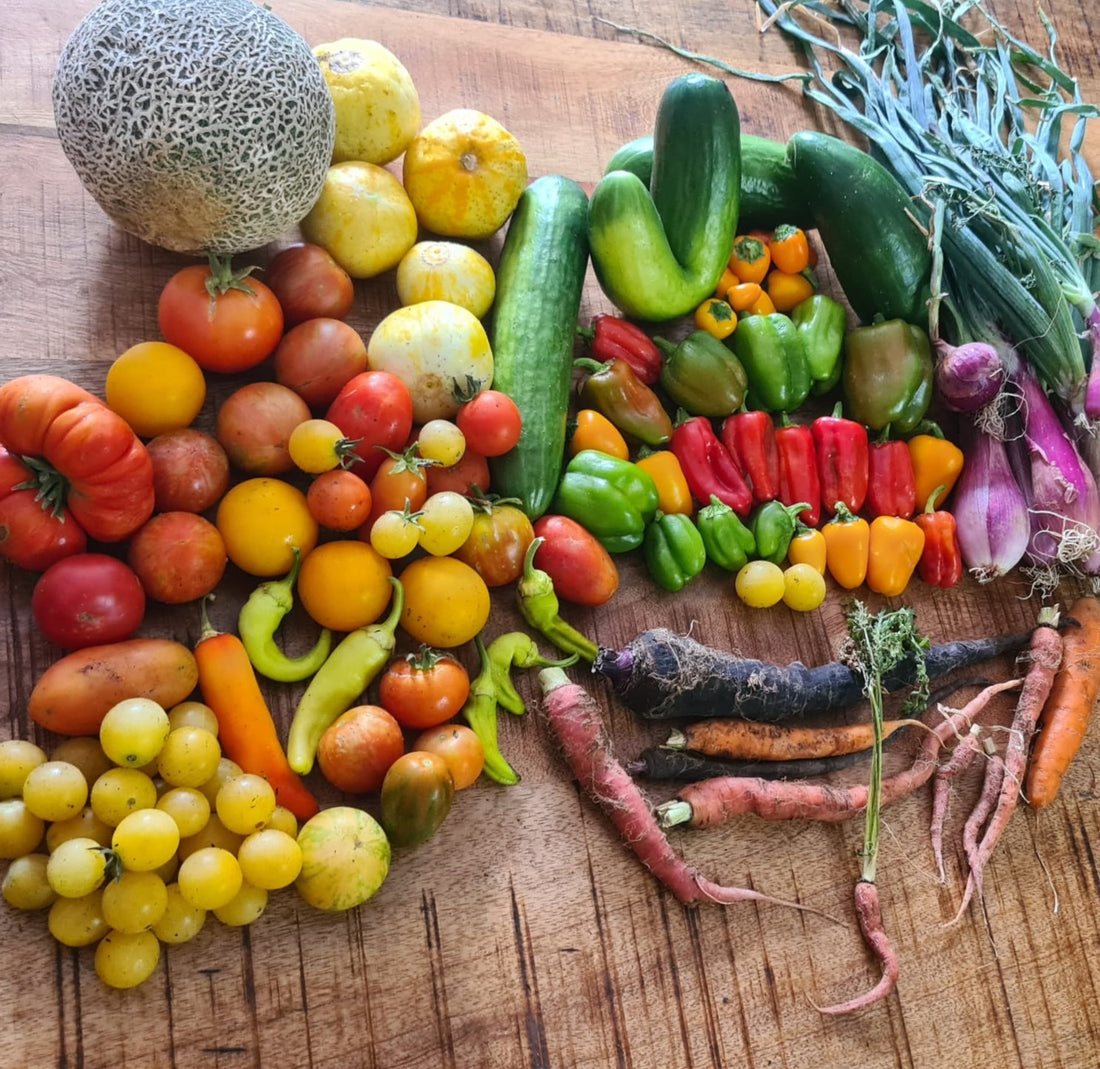As the seasons change it’s a great possibility to reconsider the gardens and we would love to share what we have used in creating ours on the homestead. Our plans have certainly changed and evolved over time as nature requests and we believe this is on ongoing commitment to ensure the health and abundance of produce.
Most of our beds have 7 different plant groups incorporating flowers, medical, root vegetables, herbs, groundcover, medium as well as tall or climbing vegetables. Of course some varieties have multiple purposes so this is just a guide line. We have mainly planted what we actually use in our home.
Companion planting is a gardening technique that involves planting different crops together that can benefit each other in various ways. Organic permaculture gardening takes this concept further by incorporating sustainable practices that work with nature to create a self-sustaining and resilient ecosystem.
Planning the garden layout carefully and considering the sunlight, soil type, and water requirements of each plant. Grouping plants with similar needs together to ensure optimal growing conditions.
Choosing companion plants wisely as this involves planting crops that benefit each other in some way. For example, planting marigolds alongside tomatoes can help deter pests, while planting beans alongside corn can help fix nitrogen in the soil.
Using natural pest control methods as organic permaculture gardens rely on natural pest control methods, such as attracting beneficial insects and using companion planting. Consider planting herbs like basil, mint, and dill, which can repel pests and attract beneficial insects.
Crop rotation is an important practice as it helps prevent soil depletion and reduces the risk of disease and pests. Using compost and natural fertilizers like worm castings and seaweed. These materials enrich the soil and improve plant health which they rely on.
By incorporating these practices into your garden, you can create a healthy and sustainable ecosystem that benefits both your plants, the environment and of course feeds your family.


